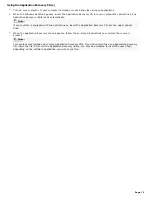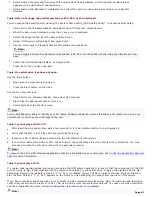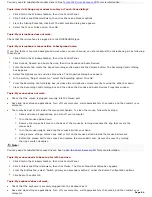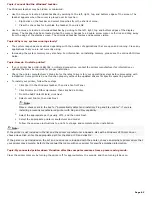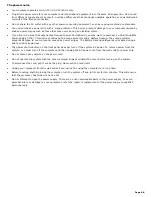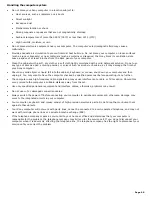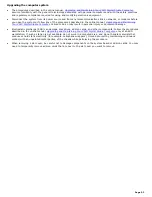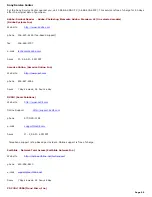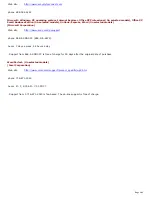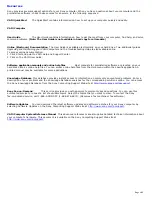
The power source
Your computer operates on 100-120 V AC 50/60 Hz only.
Plug all the power cords for your computer and its peripheral equipment into the same AC supply line. AC derived
from different supply lines may result in voltage differences that can cause unstable operation or unwanted weak
currents at the time of connection.
Do not share the AC outlet with any other power-consuming equipment, such as copying machines or shredders.
You can purchase a power strip with a surge protector. This device prevents damage to your computer caused by
sudden power surges such as those that may occur during an electrical storm.
If you live in an area that experiences frequent power fluctuations, you may want to purchase an Uninterruptible
Power Supply (UPS). This device contains both a surge protector and a battery backup. The surge protector
prevents damage to your computer caused by power surges. The battery backup safeguards your data during a
brief period of power loss.
The power control button on the front panel does not turn off the system AC power. To remove power from the
system, you must turn off the computer and then unplug the AC power cord from the wall outlet or power strip.
Do not place heavy objects on the power cord.
Do not operate the system with the cover removed. Always reinstall the cover before turning on the system.
To disconnect the cord, pull it out by the plug. Never pull the cord itself.
Unplug your computer from the wall outlet if you will not be using the computer for a long time.
Before touching anything inside the computer, turn the system off and let it cool for ten minutes. This will ensure
that the processor heat sink will not be hot.
Do not attempt to open the power supply. There are no user-serviceable parts in the power supply. To avoid
personal injury or damage to your equipment, refer the repair or replacement of the power supply to qualified
personnel only.
Page 88



